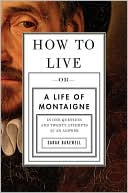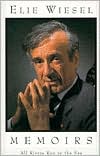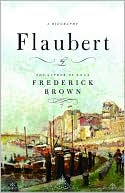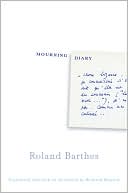Camus, a Romance
Albert Camus is best known for his contributions to twentieth-century literature-books like The Stranger spurred a revolution in existential thought. But who was Camus, beneath the trappings of literary fame? Elizabeth Hawes, who first became enamored with Camus as a young woman, embarks on a stunningly personal exploration that tells the story of the private Camus-and her dogged pursuit of him.\ Camus, a Romance reveals the man behind the name: the French-Algerian of humble birth and...
Search in google:
Albert Camus is best known for his contribution to twentieth-century literature. But who was he, beneath the trappings of fame? Camus, a Romance reveals the French-Algerian of humble birth; the TB-stricken exile editing the war resistance newspaper Combat; the pied noir in anguish over the Algerian War; the Don Juan who loved a multitude of women. These form only the barest outlines of Camus’s life, which Elizabeth Hawes chronicles alongside her own experience following in his footsteps. Camus, a Romance is at once biography and memoir—wrought with passion and detail, it is the story not only of Camus, but of the relationship between a reader and a most beloved writer. The Washington Post - Heller McAlpin It's not unusual for biographers to fall in love with their subjects. After all, researching and writing a life is a major commitment, longer and more intimate than some marriages. What is unusual is for a biographer to address a lifelong passion for her subject as directly as Elizabeth Hawes does in Camus, A Romance. She has channeled her ardor into a rich hybrid of biography, literary criticism, intellectual history and memoir. Yet, despite its personal slant, her book's revelations are mainly about Camus.
Prologue: From the Beginning 11 Young in Algeria 152 Moving On 253 To France 514 Paris 1943 695 New York 1946 996 Back to Europe 1257 TB 1498 L'Homme Révolté 1639 Friends 18110 Pursuing Char 19911 The Company of Women 21312 War in Algeria 23513 Fans 25914 Le Premier Homme 271Epilogue 289Acknowledgments 291Permissions 293Photo Credits 295Notes 297Selected Bibliography 315
\ Heller McAlpinIt's not unusual for biographers to fall in love with their subjects. After all, researching and writing a life is a major commitment, longer and more intimate than some marriages. What is unusual is for a biographer to address a lifelong passion for her subject as directly as Elizabeth Hawes does in Camus, A Romance. She has channeled her ardor into a rich hybrid of biography, literary criticism, intellectual history and memoir. Yet, despite its personal slant, her book's revelations are mainly about Camus.\ —The Washington Post\ \ \ \ \ Library JournalWhen Nobel prize-winning author Albert Camus died in a car crash outside Paris at the age of 46, the tragic news shook many intellectuals and especially affected young admirers of the French-Algerian author. A young student at the time, Hawes (New York, New York: How the Apartment House Transformed the Life of the City, 1869-1930) became more passionately interested in Camus and ended up writing her college thesis about him. That passion has turned into a "forty-year quest" or "romance" that, while not always constant or conscious, is reflected in this meticulously researched biography/memoir. Following Camus's footsteps through France, North Africa, and America, Hawes meets Camus's friends and family and draws on personal correspondence, public records, and published works to paint a detailed and vivid picture of the time, places, and people that shaped the author's life. The result is an engaging, vibrant, notably passionate and unique biography of the author. Highly recommended for all academic libraries, this should also be strongly considered by public libraries.\ —Ali Houissa\ \ \ \ Kirkus ReviewsA whimsical sojourn into the life of Nobel-winning French "writer of conscience."Former New Yorker staff writer Hawes (New York, New York: How the Apartment House Transformed the Life of the City, 1869-1930, 1993) claims that she feels "a cosmic connection" to Albert Camus (1913-60). The author mostly forgoes literary analysis, focusing instead on what his daily life was like, and how the challenges he faced informed the literature he produced. Passing cursorily over Camus's years in Algeria, primarily for lack of source material, the early chapters are choppy. Extensive quotations from his personal journal are juxtaposed with musings and descriptions of Hawes's trips to France to find "the essence of the French identity." The author then breezily discusses Camus's meteoric rise to fame in Paris as editor of Combat, and the publication of his most enduring book, The Stranger (1942). Though Hawes claims that Camus's editorials were "the talk of the town," she doesn't tell us why. Instead she attempts to capture the atmosphere of postwar France by staying at the Hotel Lutetia and ordering "a dozen oysters and a glass of Sancerre." The narrative picks up when Hawes examines the impact of TB on Camus's life. Providing graphic insights into how the disease both debilitated and motivated him from its onset in his teenage years, Hawes correctly notes how it magnified his sense of exile, of being the outsider. Camus saw himself as having a "high moral purpose," and when he published his nonfiction book The Rebel in 1951, criticizing the tyrannical aspects of revolutions, he invoked the ire of Jean-Paul Sartre and the Parisian pro-Soviet, communist intelligentsia. Hawes provides delicious detailabout Sartre's public attack on Camus's character and work, a painful betrayal by his former friend. After a period of shock and writer's block, Camus's rejection motivated him to write The Fall (1956), which earned him a Nobel Prize before his death in a car crash in 1960. Heartfelt but patchy. For more penetrating insights, see Olivier Todd's Albert Camus: A Life (1997). Agent: Flip Brophy/Sterling Lord Literistic\ \








